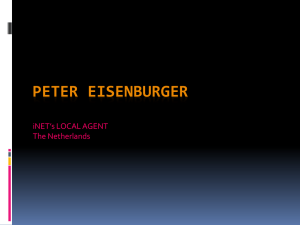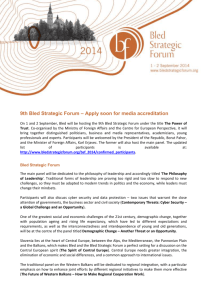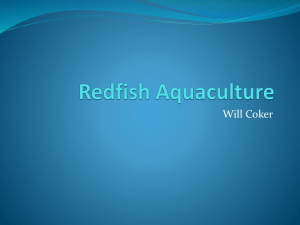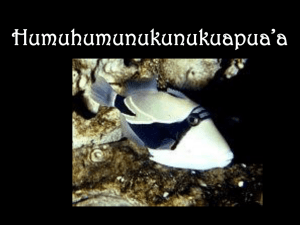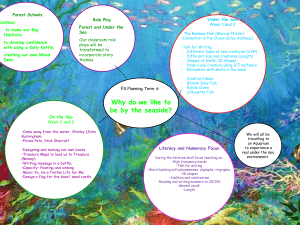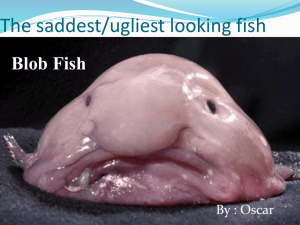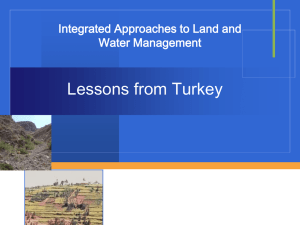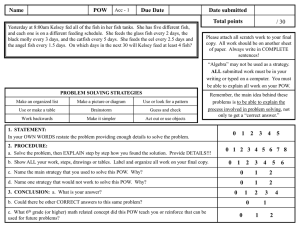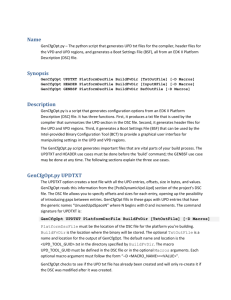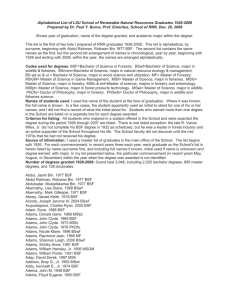Alternative Biological Treatment of Manure
advertisement
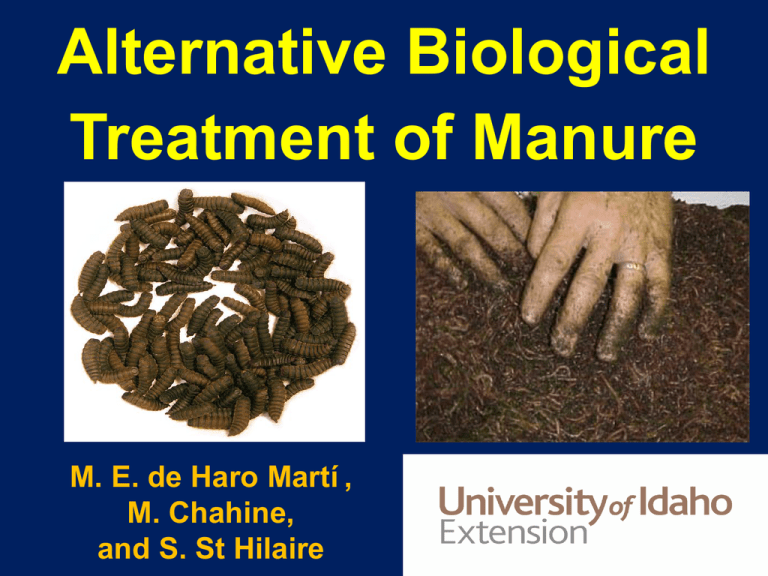
Alternative Biological Treatment of Manure M. E. de Haro Martí , M. Chahine, and S. St Hilaire Today’s presentation Manure treatment using Black Soldier Flies Black Soldier Fly research in southern Idaho Worm composting, how it works Examples of working systems Future of alternative biological systems in southern Idaho Black Soldier Fly (BSF) Hermetia Illucens Naturally occurring in southern USA, Central and South America Considered non-pest Larvae are voracious organic matter eaters As adults they don’t feed on live or decaying organic matter (no working mouth parts) How Black Soldier Flies work? In nature, adults lay eggs mostly in manure (preferred), worm composting, decaying corpses, undisturbed garbage (less preferred) Larvae feed in the organic matter reducing its volume by 40 to 50% Larvae goes trough six instars When reaching the pupae stage they migrate from the feeding area looking for a dry and protected place to finalize pupation BSF research in southern Idaho Three years WSARE grant (UI, ISU) • Two years lab research (ISU, Pocatello) • One plus year of research within fish industry application (UI, Hagerman) • One year on-farm trial (Dairy in Buhl) Results from research are very promising More on-farm trials needed to achieve a working systems for dry and cold climates BSF research in southern Idaho Research results in southern Idaho showed: BSF 40% protein and 30% fat content make it an excellent feed source for salmon and trout Dried or frozen pupae has a long shelf life BSF fed with fish offal has higher omega 3 fatty acids content BSF can comprise an important part of the fish feedstock in local hatcheries No after taste in fish fed with BSF Research results in southern Idaho showed: BSF larvae can reduce volume of dairy manure by 50% and DM solids weight by 40% Important waste nutrient reduction (table) Takes care of separated solids as well as fish offal (two waste streams become feedstock!) In ID they need to be fed fish offal to reach pupation stage faster Cold nights significantly reduce BSF activity Good results even under adverse environmental and working conditions Nutrient Reduction in Manure Processed by Black Soldier Fly Item PostPre-processed processed bymanure (Kg) product (Kg) Net reduction (%) Weight, DM 345.2 212.6 38.4 Total N 10.6 4.8 55.1 1.50 23.9 Total P 1.97 Carbon Ash 156.0 69.0 92.5 63.8 40.7 7.6 Events time line Fish offal addition Two days after fish offal addition Black Soldier Fly Larvae at work two days after fish offal addition Vermicomposting Composting with worms Half dozen different species of earthworm are used Eisenia fetida most common Naturally occurring around the world They are scavengers and decaying organic matter eaters (vegetal materials) Vermicomposting Vermicomposting has been used to process different types of wastes for many years Effective but slow process Reduce volume by 40% to 50% Castings have excellent properties as fertilizer and soil amendment Worms can be commercialized in diverse ways On-farm and municipal scale facilities exist and have diverse grades of success Using Vermicompost Turnips: 0%, 10%, 20% vermicompost by volume added to field plots, Biological & Agricultural Engineering, NC State University Vermicomposting examples Queensland, Australia Tarboro, NC Swine manure Geneseo, NY Dairy manure UI research and Extension 2010 Pilot project to test a worm composting unit designed in Gooding, ID Collaboration with local high school and designer company Alternative biological systems in southern Idaho - challenges Black Soldier Fly and Vermicomposting systems have similar challenges in the area Creating a suitable environment to operate year round is the most challenging technically and economically They can handle just part of the dairy and fish industry waste streams By products are of relatively high value More market assessment needed Challenges and answers Suitable farm scale systems for BSF and vermicompost need to be developed more Producers and market acceptability needs to increase More funding is necessary to develop research on farm-scale initiatives and adaptation to our geographical area Capacity to be a sustainable and profitable part of dairy and waste management operations Questions?

